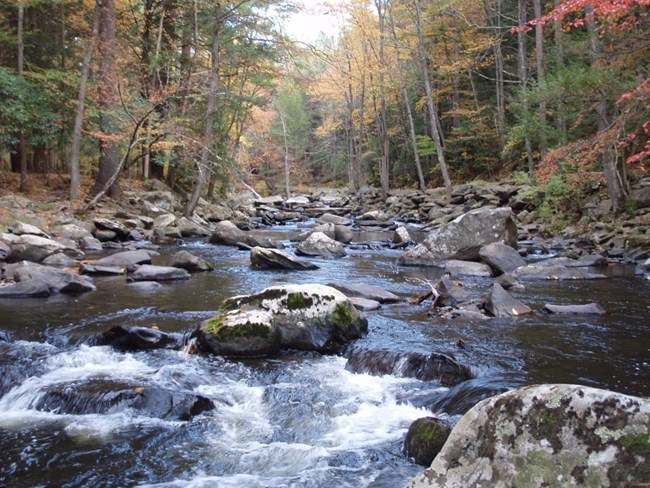
Image: Coalition for the Delaware River Watershed.
Daniel Van Abs, professor, and Karen O’Neill, associate professor, Department of Human Ecology, are co-PIs on a new grant of $305,000 from the William Penn Foundation of Philadelphia. The grant funds the second phase of a project to identify all government expenditures for the purposes of water quality protection and improvements in the Delaware River Basin, from 2014 through 2021. Supporting the development of the project database are associate director Lucas Marxen and web/application developer Michelle Stuart, SEBS Office of Research Analytics, while graduate student interns provide assistance with data acquisition.
“Since 2014, the William Penn Foundation has fostered a powerful collaboration among nonprofit organizations working within the Delaware River Basin, but they recognize the critical importance of improved government funding for water resources protection,” said Van Abs. “This project will help them gauge the success of their efforts and those of the collaborative.”
Land preservation, agriculture best management practices, stream and lake restoration, wastewater system upgrades and similar capital projects are among those funded by the William Penn Foundation.
“Experts affirm what our data show, which is that the criteria used for environmental protection and farm assistance favor rural areas, which are majority White,” said O’Neill.
“Some of these experts have remarked that projects in the Basin have not adequately addressed how conservation can serve the rural poor or people in ethnically diverse, downstream urban areas. In this second phase of research, we will track whether discussions and actions about equity change,” explained O’Neill.
The findings from the Rutgers project will assist the foundation in tracking trends in government expenditures from all levels, federal to municipal, and will provide information on the relative expenditures among different governmental organizations and project categories. Analysis of funding and expenditure equity issues will also be conducted.
The foundation’s funding of the various projects is disbursed under its Delaware River Watershed Initiative, which provides $35 million each year to nonprofit organizations and academia. The aim of the initiative funding is to improve water quality in the Delaware River Basin, which supports drinking water supplies for approximately 15 million people.
The Basin comprises parts of four states, Delaware, New Jersey, New York and Pennsylvania. The first phase project identified more than $800 million in governmental expenditures for 2014 through 2019, for a more limited set of project categories. In addition, experts from nonprofit and community organizations and governments were interviewed regarding their perceptions of government funding and equity issues regarding how those funds are distributed.

